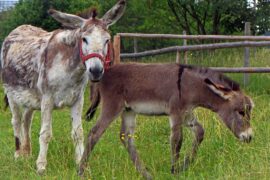People around the world consider various animals as pets. But what about donkeys? Do donkeys make good pets? If yes, what are the reasons that make them good pets?
The perception about donkeys is that they are mostly used as draft animals or as guard animals on a farm to protect the livestock. But the truth is, Donkeys can be extraordinarily sweet, gentle, and fun, making great pets for you and your family. If you are looking to expand your horizons beyond just dogs and cats, a donkey might make a good pet for you.
Why do donkeys make good pets?
Donkeys make good pets for a wide variety of reasons. They are intelligent and really don’t require all that much space or maintenance, all things considered. They are loving and friendly and are happy just being around you. They are relatively low maintenance and inexpensive, and depending on the size of the donkey, it could give rides to your kids or even you if the donkey is big enough.
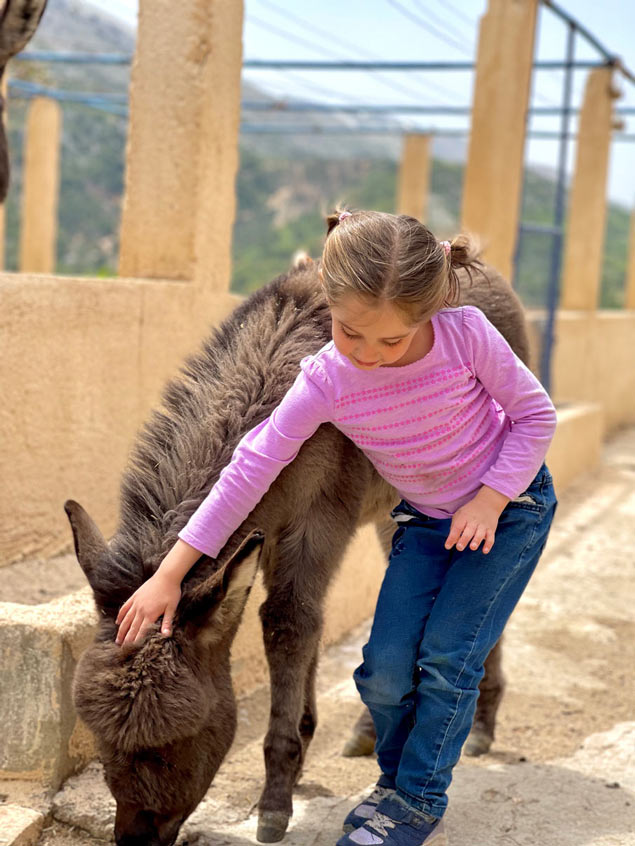
Which sized donkey makes the best pet?
There are three different sizes of donkeys: the miniature, the standard, and the mammoth. When considering which donkey will make a good pet for you, it depends on what kind of space you have and your needs and wants.
Do you want to be able to ride your donkey? A standard donkey or a mammoth might be the best bet because they are the only ones big enough to carry an adult. Or are you just looking for a cute companion that is a little bit closer to the ground? In that case, a miniature donkey might make a good pet for you.
The miniature donkey is the most popular to keep as a pet of the different-sized donkeys. They don’t require nearly as much food or land as the standard or mammoth donkeys do.
However, don’t let the name mislead you. Miniature donkeys aren’t exactly mini. They are mini in the sense that they are smaller than regular donkeys. But they can be up to three feet tall and weigh anywhere from 200 to 450 pounds. They can also live anywhere from 20 to 35 years old.
How much space do donkeys need?
A miniature donkey needs one to two acres of land. At the very minimum, a miniature donkey should have at least 0.5 acres of land. In theory, a miniature donkey could even live in a backyard so long as it had access to shelter, hay, and fresh water. But ideally, the more land, the better. Calculate for even more acreage if you get a bigger donkey or multiple donkeys. Donkeys love to have plenty of room to walk, run, play, and graze.
Shelter for donkeys
At the very minimum, donkeys need a three-sided shelter that they can always have access to. If you live in a colder climate, you will need a clean, dry barn since donkeys are desert animals and are not as well prepared for cold or wet weather as other animals might be.
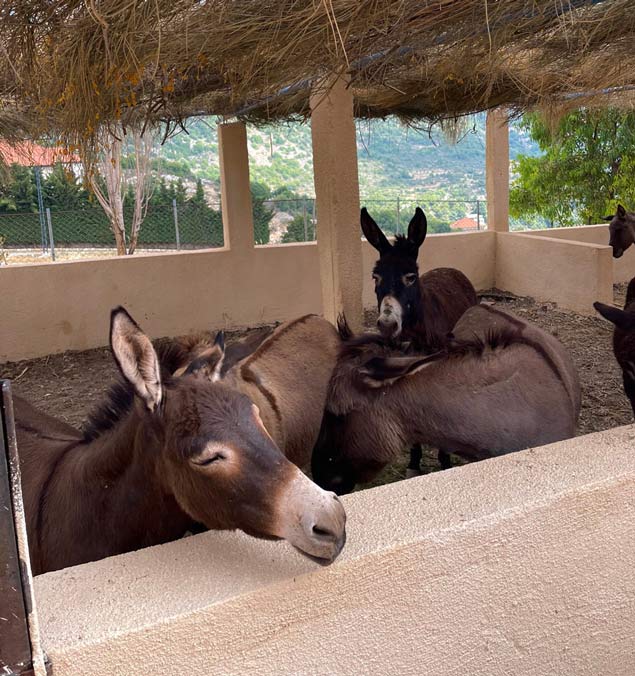
Can a pet miniature donkey live inside?
Donkeys need room to be themselves and play and roam outside. But, if you want to let your pet miniature donkey inside to spend time with you, you certainly can. Bear in mind that it will require some extra training, especially if it has only ever known the outdoors.
Start slow and restrict access to only certain areas of the house. Donkeys are intelligent and will learn quickly but still need to be taught the same manners as any other house pet, which can take some time.
Are pet donkeys expensive?
Pet donkeys are a financial commitment, especially due to their lengthy lifespans. Their regular care is not necessarily expensive, but as with any pet, unexpected bills like emergency vet visits can make your pocketbook a bit lighter. Other bills will include purchasing hay regularly and preventative care like shots, deworming, hoof care, dental care, etc.
Time commitment
A pet donkey, or any donkey, will require a bit of time from you every day. They will probably need at least an hour, if not more. They love their humans and want to be around them, so more time together is always better in their eyes.
Spend time twice a day feeding and grooming your donkey by brushing its coat and cleaning its feet. You can even talk to your donkey or take it for a walk with you. Take your donkey on your evening stroll and tell it all about your day – it may not respond, but they can be great listeners. Some people even train with and run with their donkeys on marathons. Talk about a bonding experience.
Do I need to get two donkeys?
It is worth considering getting two donkeys. Donkeys thrive on companionship, so you will most likely need to get two unless you plan to be outside with your donkey 24/7. Without a buddy, a donkey can quickly get depressed and lonely.
Once a donkey has a friend, they can form a special bond that lasts for life. Don’t worry; the bond they form with each other won’t take away from their attachment to you. Donkeys are social animals and have tons of best friends. The more, the merrier.
Feeding donkeys
Donkeys can become overweight very easily. Their diet should primarily consist of barley straw and hay, and some grass. Too much rich grass can cause gastrointestinal upset and lead to obesity. Also, avoid letting your donkey get access to any horse or cow feed, as this will also be far too rich for them.
Donkeys need constant access to fresh water. They will usually drink anywhere from six to eight gallons every day. Some owners will already have a well or fountain in their pasture, and others will need to use a refillable tub or barrel for water.
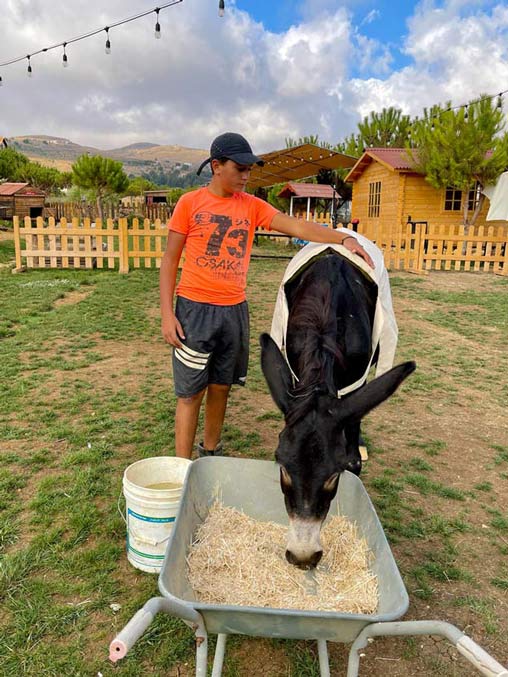
Can a donkey be more than just a pet?
Donkeys are versatile animals and have many uses. Standard-sized donkeys and mammoth donkeys can be saddle donkeys, giving people rides, and they can pull carts and haul heavy packs both short and long distances.
Miniature donkeys are primarily just kept as pets, but they can carry or pull what they are capable of, too, if you can find a job for them. Some people like to take their donkeys hiking in the backwoods and have them carry their gear. Others might make and hook up a little wagon to their donkey and teach it to give the kids a ride around the yard. The kids will love the experience, and the donkey will too.
How to choose your pet donkey
If you are getting a pet donkey, do not get a Jack, an intact male, as they can be too aggressive. Instead, get a Jenny, a female, or a gelding, a castrated male. These will both be much calmer and much easier to handle and train.
It is also recommended to get an older, trained donkey that is being rehomed as your first ever donkey. Many older (three years plus) donkeys need new homes and would make great pets for first-time donkey owners. It is usually best to wait to raise baby donkeys until you have more experience with donkeys.
Another advantage of getting an older donkey is that it will be more likely to act as a livestock guardian. Also, keep in mind that miniature donkeys are not meant to be used as livestock guardians. They will undoubtedly act tough and alert you and the other animals to threats, but due to their size, they aren’t as threatening as they like to think they are.
Low maintenance
One of the benefits of having donkeys as pets is that they are relatively low maintenance. They just need some quality straw, water, shelter, pasture, and a quick daily brush down, but that’s about it for their day-to-day needs. Well, a little hello and a visit from their favorite human wouldn’t hurt. They’ll need regular vet check-ups and farrier visits, but they aren’t very complicated beyond that. In fact, some owners report that they are both easier to care for and cheaper than horses or dogs.
Donkeys can be loud
Keep in mind that donkeys can be loud. Its bray can travel a long distance, and they bray for just about anything. But many people think it’s part of a donkey’s irresistible charm. It can be adorable when they throw their heads back, and it almost looks like they are howling.
Donkeys and dogs
Donkeys have a history of being aggressive to canines. In the wild, wolves and coyotes are the donkeys’ predators, and since dogs are so similar to wolves and coyotes, donkeys still have those same instincts. If you have a dog, properly socializing your donkey early on with your dog will be essential to keep both animals safe. If you have multiple dogs, only allow one out at a time around the donkey so as not to overwhelm it when first bringing it home. Use positive reinforcement training for both dog and donkey to encourage them to be friends.
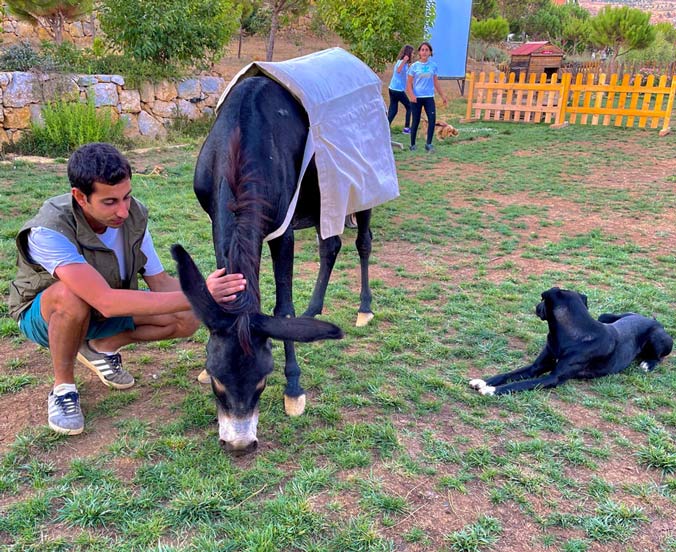
Get hands-on experience
Talk to and visit someone who already has a pet donkey. Visiting someone with a donkey will help you get a better sense of what a pet donkey might be like for you. You’ll be able to see their pasture set up and spend some time with them and their donkey and see what the animal is like for yourself. Maybe you’ll hear the donkey bray yourself and discover whether you find it annoying or cute.
Conclusion
So, do donkeys make good pets? Yes, they do. They are relatively low maintenance and are incredibly sweet and full of character. Don’t forget that a pet donkey is a big commitment – you’ll spend decades together. Don’t let this scare you, though, because it can be something really special, too – a friendship for the ages. If you’ve ever been lucky enough to have a pet dog or cat in your life for longer than expected, just imagine how special your pet donkey will be to you and your family after ten, fifteen, twenty, twenty-five-plus years.

![Do Donkeys Make Good Pets? [Plus What to Know Before You Get One] Do-Donkeys-Make-Good-Pets](https://donkeyonfarm.com/wp-content/uploads/2022/05/Do-Donkeys-Make-Good-Pets.jpg)

![Do Donkeys Laugh? [Plus Why Do They Do It?] do-donkeys-laugh](https://donkeyonfarm.com/wp-content/uploads/2022/08/Why-do-donkeys-laugh-270x180.jpg)
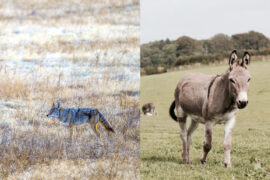
![Are Donkeys Dangerous to Dogs? [Plus How to Keep Your Dog Safe] Are-Donkeys-Dangerous-to-Dogs](https://donkeyonfarm.com/wp-content/uploads/2022/07/Are-Donkeys-Dangerous-to-Dogs-270x180.jpg)
